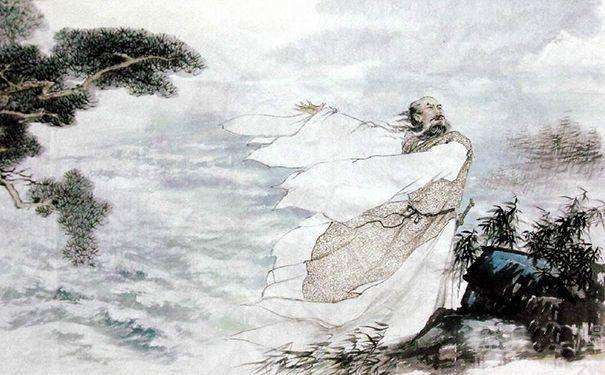Ancient poetics shows vitality in modern world

Poetry has been used by ancient Chinese literati as a major form of literary creation to express their political attitudes and comments on social conditions. For example, Qu Yuan (339-278 BCE), a poet and statesman in the Kingdom of Chu in the Warring States period (475-221 BCE), wrote two lines “Long did I sigh to hold back tears; saddened I am by the grief of my people,” to express his disappointment at the corrupt political conditions in which crafty and sycophant politicians dominated the power in the Kingdom of Chu.
Throughout Chinese history, there has been an abundance of poetry, which consequently led to profound development of poetic theories. The spiritual value and ideological traditions embedded in ancient poetics breathe life into modern Chinese poetics.
Poetic essence
Chen Xiangchun, a professor from the College of Arts at Northeast Normal University, said traditional poetics focused on humans and reality. The core spirit or motivation of ancient poetics was its “practical use” for the cultivation of individual personalities and society.
Ma Dayong, a professor from the College of Humanities at Jilin University, said there are two features of ancient poetics that should be particularly valued. The first is the emphasis on the responsibility to reflect upon, criticize, and intervene in worldly affairs. For example, be it the Book of Songs in the Book of Poetry, the Song of Chu, or the statements such as “investigating history via poetry” and “poetry is created to express the poet’s view on specific events” all embody uprightness, the nature of law, conscience and a code of conduct when expressing oneself.
The second is the aesthetic expression, first characterized by sincerity. This sincerity is embodied in its natural manner, veridicality, courage and insight. Another characteristic is its strength, as demonstrated in its insight, amusement, and artistic charm. The integration of responsibility and intelligence is an ideal of classical Chinese poetics.
Poetic culture
It is necessary to bring forth the concept of “poetic culture” to understand Chinese poetics. Chen said the concept contains at least two meanings. First, poetry was widely “used” in ancient Chinese society. Traditional literature takes poetry as a key pillar. Poetic elements were presented in various cultural forms and carriers. Ancient people left modern Chinese the practice of using poetry. Second, as a cultural symbol and linguistic art form, poetry goes beyond the pursuit of aesthetics and offers meaning and ideological support.
Cao Xinhua, a professor from the College of Liberal Arts at Shanghai University, said Chinese poetics contains the “architectural, musical and pictorial beauty” put forth by Wen Yiduo (1899-1946), a representative figure of the New Moon School in China. More specifically, there is a type of “architectural” beauty inherent in Chinese characters. Each character has a single syllable, presenting a neat form, particularly in the poems with five or seven characters a line. In addition, Chinese characters have four tones, adding to the musical aspect of poetry. Also, people tend to use “paintings in poetry and poetry in paintings” to describe the ability of poetry to create usuals in the readers’ mind. In this way Chinese poetry shares the same artistic beauty as paintings.
However, responsibility and intelligence are not only the essence of classical Chinese poetics, they also demonstrate great vitality and energy in the modern world, and will continue to do so in the future. Ma said modern Chinese poetics should pay more attention to investigating ancient poetics and abstract wisdom. More importantly, poets should follow the example of their forebears and engage in real world issues.
Promoting classical poetics
How can classical poetics be used in the modern context? Cao suggested that the following aspects can be considered. First, increase the amount of poetry being read. As the saying goes, “the meaning of a book will become clear if you read it hundreds of times,” similarly, after a poem is read a hundred times, the beauty will reveal itself.
Second, it is essential to practice poetry writing. Poetry writing is a process of building an atmosphere and creating a sense of beauty from which enjoyment is gained. Third, poetry could be used in musical composition as lyrics.
Fourth, poetry can be embedded in the education system so that people can understand the beauty of poetry in an enlightenment period. Finally, creating more TV shows and cultural events like poetry competitions and conferences will be effective in raising people’s interest in poetic learning, forming a new social phenomenon of practicing old traditions in the modern world.
ZHANG QINGLI is a reporter at the Chinese Social Sciences Today.

 PRINT
PRINT CLOSE
CLOSE